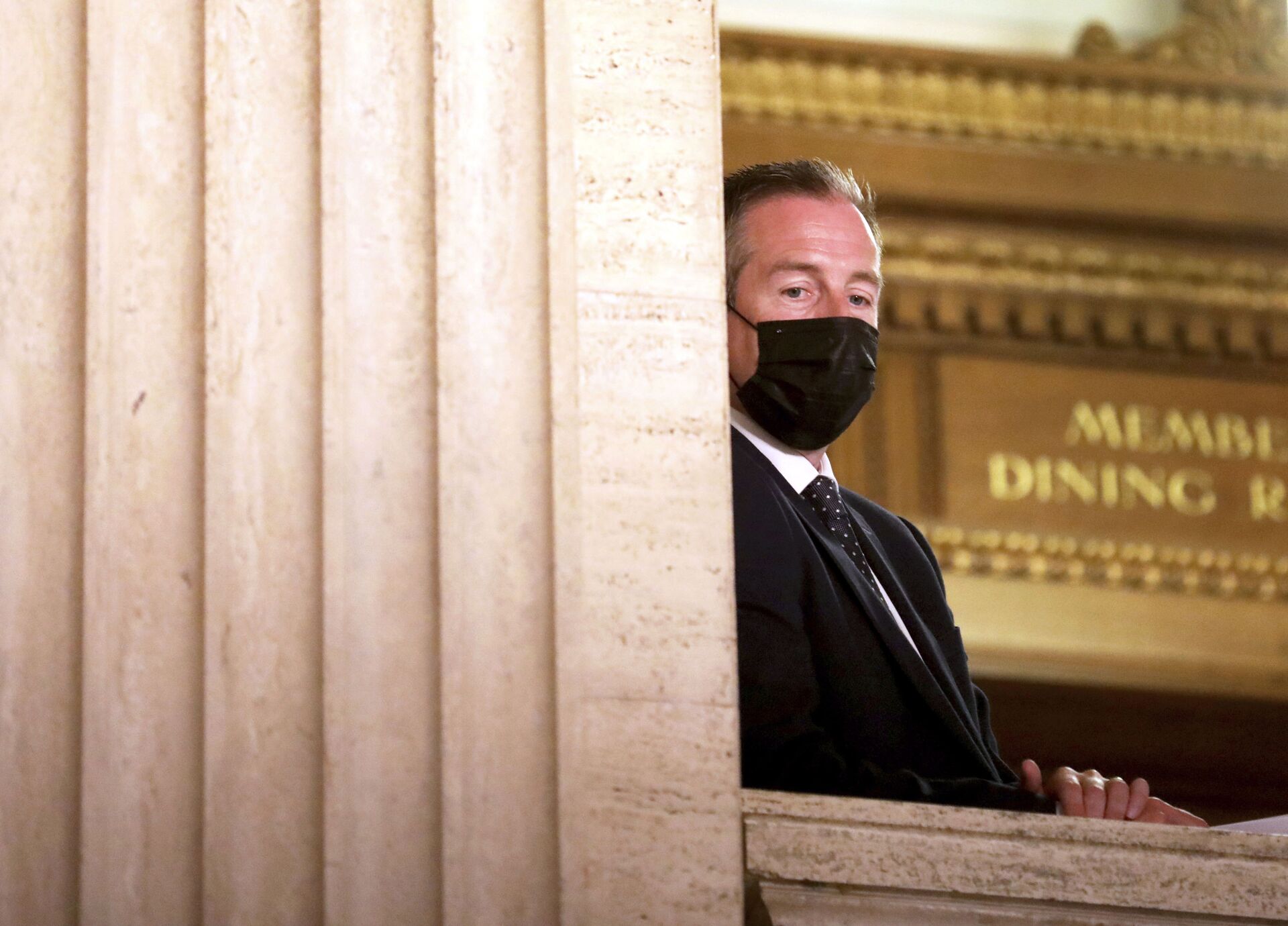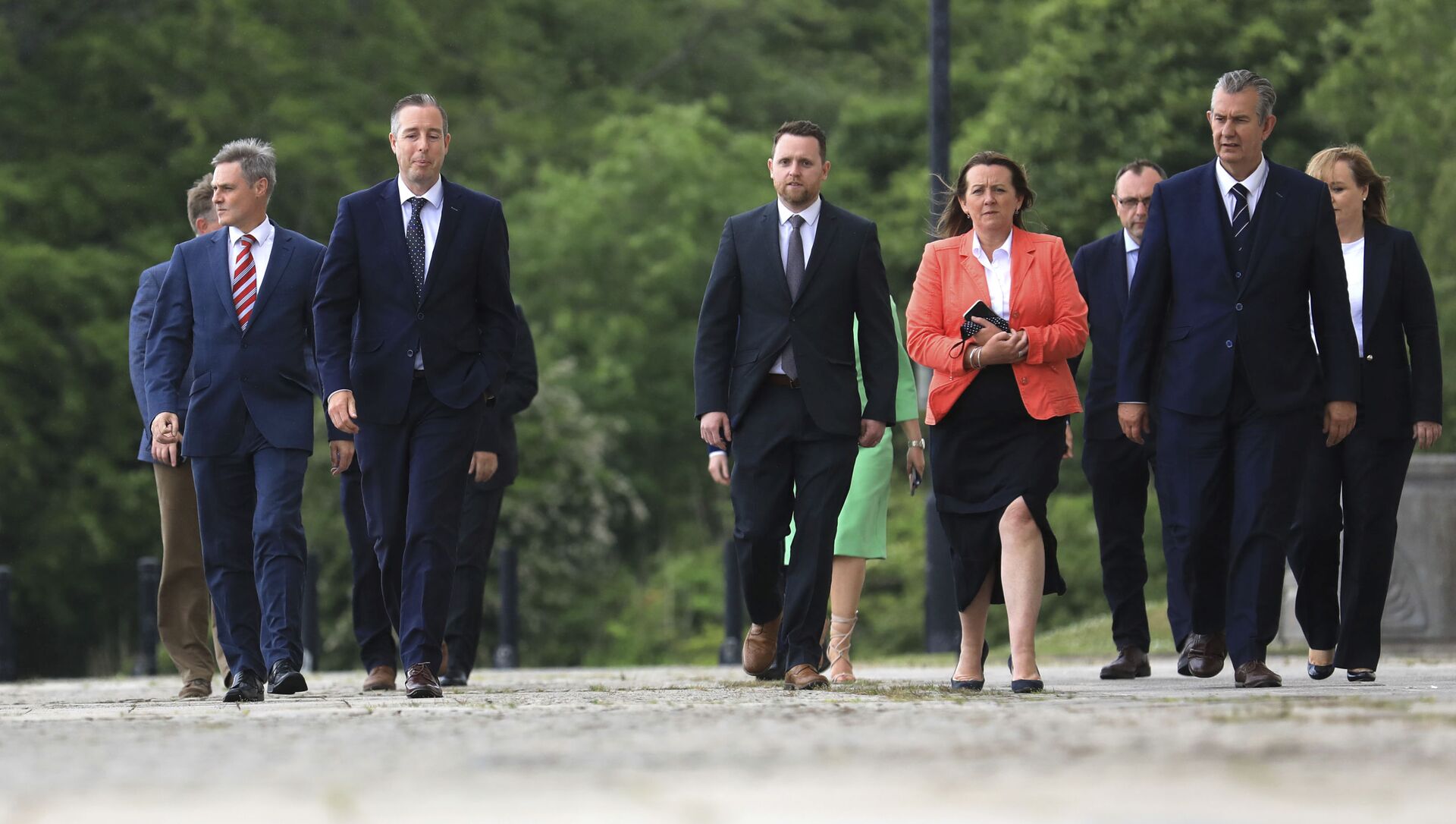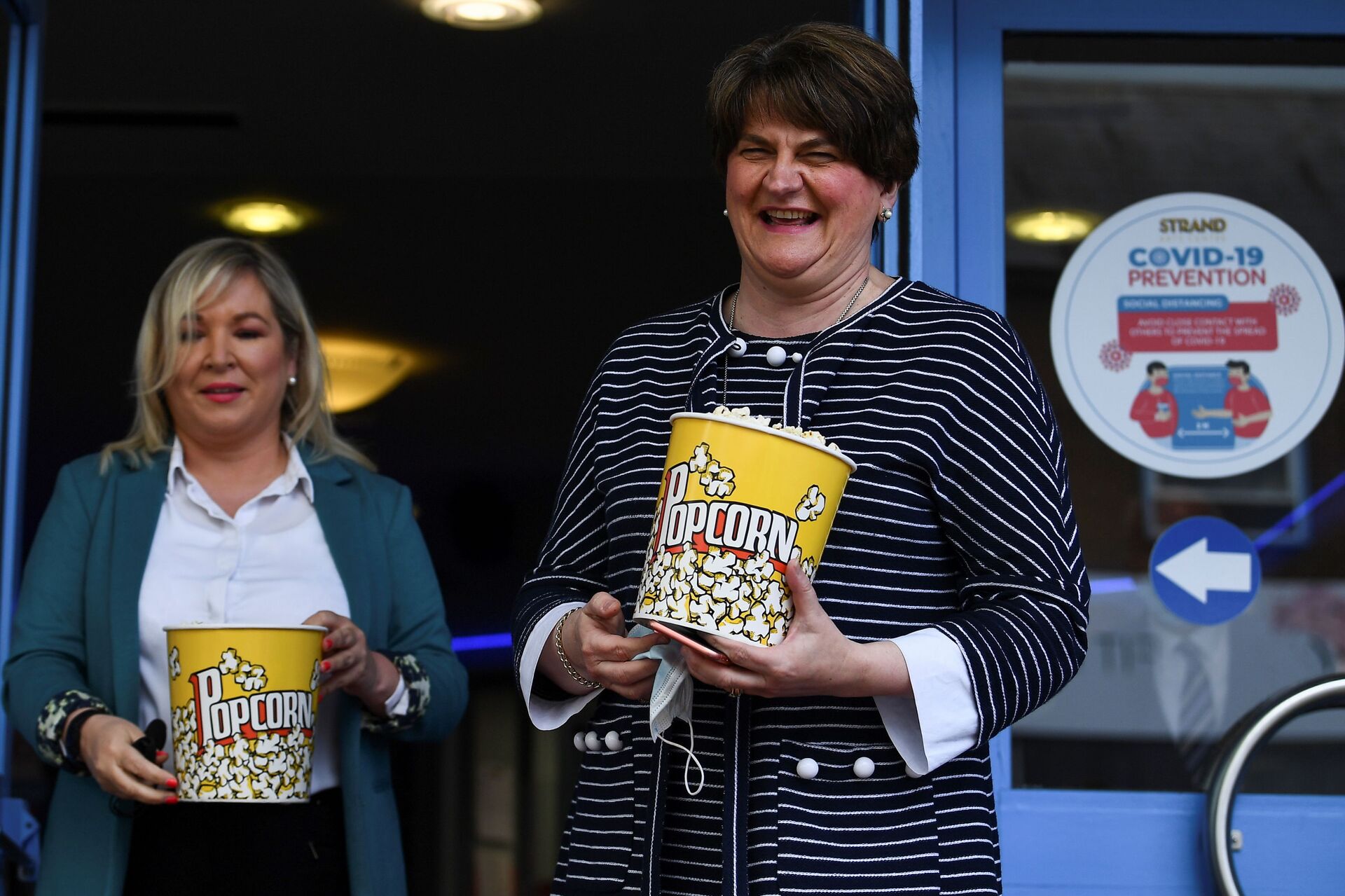Boris Johnson’s Northern Ireland Secretary Brandon Lewis has secured the agreement of the DUP and Sinn Fein over who will be the new First Minister and Deputy First Minister.
The DUP’s Paul Givan was formally nominated as the new First Minister later on Thursday, 17 June, with Sinn Fein’s Michelle O’Neill resuming the role of Deputy First Minister.
I am pleased to announce that I have secured commitments from the DUP and Sinn Féin on the nomination of a First Minister and deputy First Minister.
— Brandon Lewis (@BrandonLewis) June 17, 2021
I now expect this to happen at the earliest opportunity - later this morning!
Arlene Foster resigned on Monday, 14 June, as leader of the DUP and her successor, Edwin Poots, has been trying to resist caving in to Sinn Fein and the British government on the issue of Irish language protection legislation.
The British government had threatened to push through national legislation to protect the Irish language if the DUP did not agree to pass laws at Stormont.
#Breaking DUP leader Edwin Poots has formally nominated Lagan Valley MLA Paul Givan as Northern Ireland’s new First Minister at a special sitting of the Stormont Assembly pic.twitter.com/NiETNvb7Hs
— PA Media (@PA) June 17, 2021
Poots has reacted angrily to the pressure being exerted from London.
He told the BBC he did not welcome the intervention by Mr Lewis and said: "I indicated that the agreement that was made…was something we were committed to and prepared to work through. What I wasn’t prepared to do was have a gun held to my head in terms of the timings of that and SF’s demand that I do that before the June 24."
Unlike Foster - who was both DUP leader and First Minister - Poots is only the party leader and the new First Minister will be Paul Givan, who is a member of the Northern Ireland Assembly.
Sources reporting “bedlam” in DUP meeting as vast majority of MPs and MLAs vote against nominating a First Minister but new leader Edwin Poots nominates one anyway.
— David Blevins (@skydavidblevins) June 17, 2021

It remains unclear whether Poots and Givan are in complete agreement about the way forward but their hand appears to have been forced by London.
Sinn Fein, the largest Irish nationalist party and the former political wing of the Provisional IRA, has been demanding special rights for Irish language speakers on a par with legislation for Welsh speakers in Wales.
Sinn Fein leader Mary Lou McDonald said the British government had agreed to introduce such legislation at Westminster after the DUP refused.
.@BrandonLewis says if the Stormont executive hasn’t progressed Irish language legislation by end of September the Govt will take legislation through Westminster - by
— Jayne McCormack (@BBCJayneMcC) June 16, 2021
Introducing legislation in October
The British and Irish government are co-guarantors of the 1998 Good Friday Agreement, which ended 30 years of sectarian violence in Northern Ireland and introduced a devolved power-sharing government.
But following the death of Sinn Fein’s Martin McGuinness in 2017 the power-sharing agreeement between the two parties collapsed with Foster and O’Neill unable to reach agreeement on the Irish language issue.
Although a tiny minority of people in Northern Ireland speak or read the Irish language it is highly symbolic for the nation



